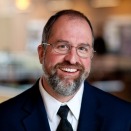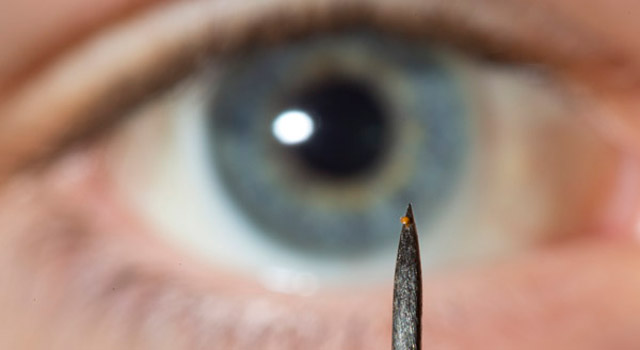Page 3 • (241 results in 0.046 seconds)
-
concepts and study of the molecular, cellular, and organismal levels of biological organization. Cell structure and function, energy transformation, the central dogma of molecular biology, plant and animal anatomy and physiology, response to environmental changes, plant and animal reproduction, and development. Includes laboratory. Prerequisite: Math placement in MATH 140 or higher; or completion of MATH 115 with a C or higher. One year of high school chemistry is recommended. (4) BIOL 226 : Genes
-

Biology class participates in research project Posted by: shortea / March 13, 2023 March 13, 2023 Beautiful mutants: a PLU biology class harvests for the futureBy Lora ShinnMarketing & Communications Guest Writer About two years ago, PLU professor Neva Laurie-Berry partnered with a world-class plant research center. The Donald Danforth Plant Science Center in St. Louis, Mo., sends Laurie-Berry’s BIOL 358 Plant Physiology class millet seeds with random mutations. Student teams study plants in
-

. Louis, Mo., sends Laurie-Berry's BIOL 358 Plant Physiology class millet seeds with random mutations. Student teams study plants in PLU’s warm, sunny greenhouse, watching for genetic traits that help millet grow taller or produce more seeds.“The Danforth Center is crowdsourcing genetic research,” Laurie-Berry says. “We’re helping Danforth go through thousands of seeds, identifying which are worth studying. No one knows how each one will behave.” PLU students are joining high school and undergraduate
-
Seanna HewittI graduated from PLU in the spring of 2014 with majors in Biology and Hispanic Studies. A semester away in Oaxaca, Mexico led me to recognize my interest in promoting food security, and greatly influenced the avenue I took for my graduate career. I am now beginning my fourth year in the Molecular Plant Sciences PhD program at Washington State University, where I am studying the genetics and physiology of fruit ripening. As part of my thesis project, I am developing a set of
-
Established in 2022 through a gift from David and Lorilie Steen, the Steen Family Symposium brings informed speakers who challenge current thinking and propose healthy change to the PLU campus for
American Studies in the Department of Education Studies at the University of Oregon “Connecting to Everything on Earth: Its Land, Water, and Peoples (Plant, Animal, and Human” 2011 – Greg Nickels, Former Mayor of Seattle and U.S. Public Delegate to the United Nations “All Politics is Local: Even Global Warming” 2010 – Dr. David Montgomery, Professor of Earth & Space Sciences at the University of Washington “Dirt: The Erosion of Civilizations” 2009 – Dr. Coll Thrush, Professor of History at the
-
Justice and Indigenous People D. Agriculture 12 semester hours from any of the following ANTH 368: Edible Landscapes, The Foraging Spectrum BIOL 116: Introductory Ecology BIOL 356: Economic and Cultural Botany BIOL 358: Plant Physiology BIOL 367: Conservation Biology and Management BIOL 368: Ecology BIOL 443: Plant Development and Genetic Engineering BIOL 462: Plant Diversity and Distribution ECON 101: Principles of Microeconomics ENVT/GEOS 104: Conservation of Natural Resources E. Youth in
-
Biology class participates in research project Beautiful mutants: a PLU biology class harvests for the future About two years ago, PLU professor Neva Laurie-Berry partnered with a world-class plant research center. The Donald Danforth Plant Science Center in St. Louis, Mo., sends Laurie-Berry’s BIOL 358 Plant Physiology class millet seeds with… March 13, 2023 AcademicsBiologyProfessorsResearchSciences
-
systems. Much of my past research has focused on interactions between herbivores and algae in marine systems. This has included studies of geographical gradients of herbivorous fish diversity and how temperature effects on physiology may play a role in driving this pattern and the effects of fisheries and disease on sea urchins and kelp forest ecology. My current research projects include studies of the community ecology of rocky shores of Puget Sound, disease ecology of sea urchins, and larval
-

Matt Smith Chair of Biology Phone: 253-535-7550 Email: smithmf@plu.edu Office Location: Rieke Science Center - 155 Professional Additional Titles/Roles Associate Professor of Biology Education Ph.D., Physiology and Neurobiology, University of Connecticut, 1997 B.S., Molecular/Cellular Biology, Humboldt State University, 1990 Areas of Emphasis or Expertise Vertebrate Physiology Neurobiology
-

April 1, 2013 The plant Arabidopsis thaliana produces seeds so minuscule that 5,000 can fit on a thumbnail. This past summer student-researchers Bryan Dahms ’13 and Ben Sonnenberg ’14 counted more than 30,000 seeds as part of a study. (Photo by John Froschauer) Planting the seeds of knowledge Student-faculty research gives students the opportunities to discover the ‘right questions’ By Chris Albert This past summer, Bryan Dahms ’13 was sitting in a lab with fellow student-researcher Ben
Do you have any feedback for us? If so, feel free to use our Feedback Form.


